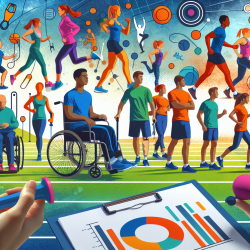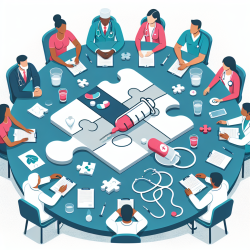Understanding the FitSkills Protocol
The FitSkills programme is a community-based exercise initiative designed to increase physical activity participation among young people with disabilities. This study employed a stepped wedge cluster randomised trial to assess the feasibility and effectiveness of scaling up the FitSkills programme from a small university-led initiative to a larger community-university partnership.Key Findings from the FitSkills Study
The research identified several critical outcomes that can guide practitioners in enhancing their therapeutic interventions:- Increased Participation: The programme demonstrated significant improvements in exercise participation among young people with disabilities. Participants attended gym sessions regularly and showed sustained engagement in physical activities.
- Improved Health-Related Quality of Life: Participants reported better health-related quality of life, including physical and social well-being.
- Positive Attitudes Towards Disability: The programme also positively influenced the attitudes of mentors, gym staff, and patrons towards individuals with disabilities.
- Cost-Effectiveness: The study found that FitSkills is a cost-effective intervention from a societal perspective, providing a high return on investment in terms of health benefits and quality of life improvements.
Practical Applications for Speech-Language Pathologists
As practitioners dedicated to creating positive outcomes for children, incorporating the principles and findings of the FitSkills study into our practice can yield substantial benefits. Here are some actionable steps:- Collaborate with Community Resources: Partner with local gyms and community organizations to develop similar exercise programmes tailored to the needs of young people with disabilities.
- Integrate Physical Activity Goals: Set specific, measurable physical activity goals as part of your therapeutic plans. Encourage regular participation in community-based exercise programmes.
- Mentorship Programs: Establish mentorship programmes where older children or young adults can guide and support younger participants, fostering a sense of community and inclusion.
- Advocate for Inclusive Policies: Work with community stakeholders to advocate for policies that support inclusive physical activity opportunities for young people with disabilities.
Encouraging Further Research
The FitSkills study underscores the importance of evidence-based interventions in improving the lives of young people with disabilities. As speech-language pathologists, we should remain committed to continuous learning and research. Engaging in further studies can help us refine our approaches and ensure we are providing the most effective, data-driven care.To read the original research paper, please follow this link: FitSkills: protocol for a stepped wedge cluster randomised trial of a community-based exercise programme to increase participation among young people with disability.










